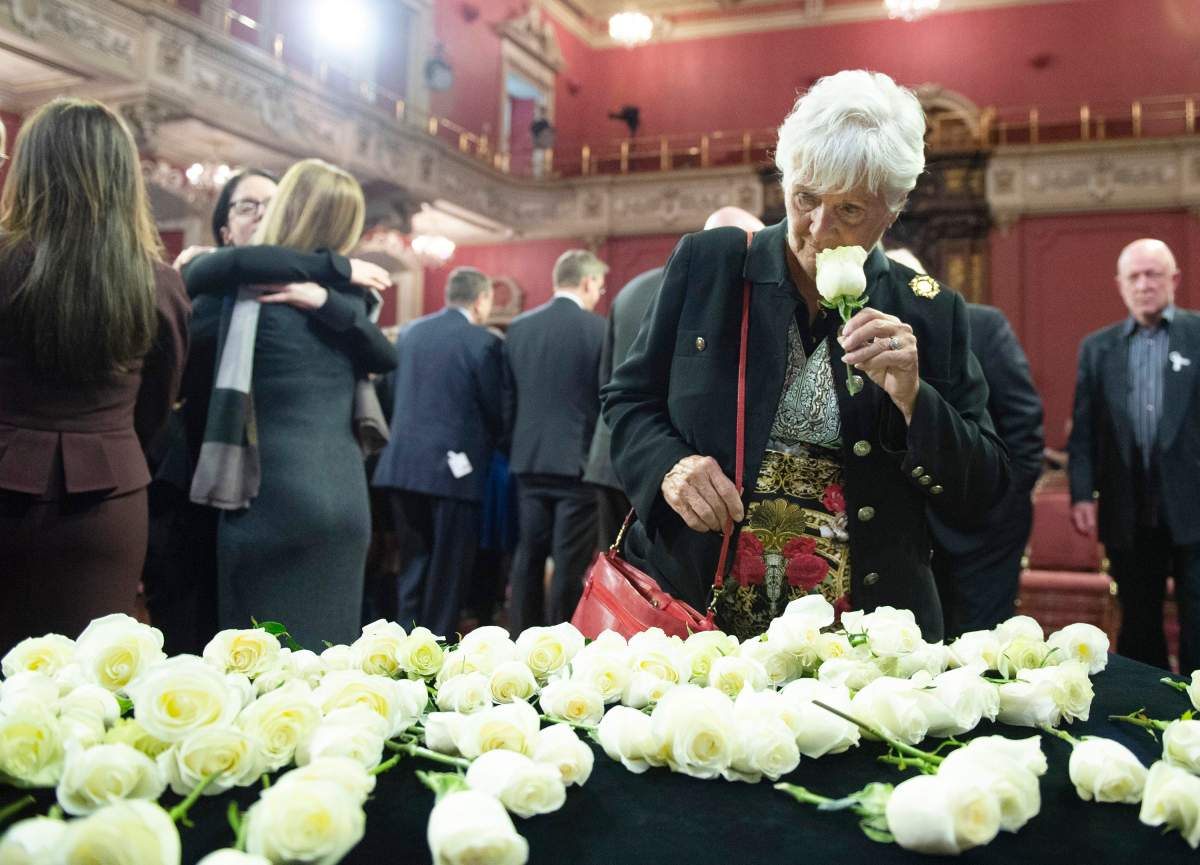As the third anniversary of the Quebec City mosque shooting approaches, gun control advocates are urging the province to tighten rules around reference checks for those seeking gun permits.

Advocates have pressed for change since it was revealed that the mosque shooter, Alexandre Bissonnette, did not acknowledge when applying for a firearm permit that he had experienced periods of depression, and his family did not report it to authorities.
Suzanne Laplante-Edward, whose daughter was killed in another mass shooting, notes that no one verified Bissonnette’s statements and if they’d done so, the weapons used in the attack would have remained out of his reach.
Laplante-Edward and other family members of Montreal Massacre victims had a chance to discuss the issue with Premier François Legault during a recent ceremony.
“We had a very good meeting with Mr. Legault in Quebec City when our daughters’ were awarded the medals and he was very receptive to what we had to say,” said Laplante-Edward, whose daughter Anne-Marie Edward was one of the 14 women killed in an anti-feminist attack at Ecole polytechnique on Dec. 6, 1989.
“What we had to say was three years after the mosque shooting — which really showed how flawed the system is — nothing had been changed regarding the screening process.”
READ MORE: Gun-control advocates call for Quebec to crack down on people who don’t register firearms
Laplante-Edward said advocates like herself and other Polytechnique families want the province to enforce the existing procedures allowing access to firearm permits.

Get breaking National news
In a follow-up letter to Legault in mid-December, Laplante-Edward pressed for further tightening of the rules.
“Three years have passed since the mass killing of the Grande Mosquée de Québec, and nothing, Mr. Legault, absolutely nothing has been done by the Quebec government to correct the shortcomings in the federal law enforcement process, in terms of access to permits,” Laplante-Edward wrote.
She said the premier agreed it was imperative for the Quebec government to act quickly to fill in the gaps on background checks.
“Quebec must be proactive, not reactive, when it comes to knowing whether or not a person should have access to firearms,” Laplante-Edward wrote.

The federal government has promised a range of measures to tighten gun control rules, and Quebec says it has had discussions with Public Safety Minister Bill Blair about upcoming changes.
“As we know, the feds are looking for ways to tighten gun control as well, and we said we’re always willing to have discussions regarding it,” said Jean-François Del Torchio, a spokesman for the province’s public security minister.
Del Torchio pointed to the province’s own gun registry, which came into effect on Jan. 29, 2019 — the second anniversary of the mosque shooting that left six people dead and 19 wounded.
Bissonnette has been sentenced to life in prison with no chance of parole for 40 years for six counts of first-degree murder and six more of attempted murder in the attack on Jan. 29, 2017.
Del Torchio noted that despite a lot of skepticism about whether the new provincial registry would work, a million people have signed up in the first year.
“We’re always looking, if there’s ways to tighten things up,” he said.
PolySeSouvient, a gun control organization that includes many Polytechnique massacre families and survivors, said while Quebec does deserve credit for having its own registry, the tool won’t be much use if firearms officers and police don’t double-check references on permit applications.
The group recommends that Quebec provincial police ensure they follow up on references listed on applications and conduct thorough medical checks for mental-health issues — a process the group says should also be undertaken with current gun owners.
The group says as it stands, checks aren’t done unless police have a suspicion to investigate.
In a separate letter sent to Legault, PolySeSouvient that it had raised the issue with Blair about investing extra resources with provincial authorities to strengthen the investigation process surrounding permit applications.
READ MORE: Feminism met gunfire at École Polytechnique. It’s taken 30 years to call it what it was







Comments
Want to discuss? Please read our Commenting Policy first.